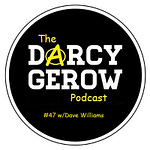The political landscape in Canada is as absurd as ever. Justin Trudeau has resigned in disgrace and Trump is threatening to annex the ashes of what remains. The word liberty is abused by both sides with such abandon that its actual meaning has become insignificant. Trudeau’s
potential replacements are terrifying, and Canadian conservatives are simultaneously riding the coattails of Donald Trump and rejecting the radicalism that elevated the republicans to victory. The expectation from Canadian voters is that some hero politician will come in and by the magic use of parliamentary decree return Canada to a beacon of freedom and prosperity. The reality is that the best we can hope for is someone slightly less embarrassing as the next Prime Minister. The magic use of parliamentary decree is the problem, not the solution.
Justin Trudeau’s legacy, for all its faults, at least brings Canadians together in a shared sense of humiliation. And why not? After all, every Prime Minister resigns in shame and disgrace. Trudeau’s story arc, however, has a significantly more tragic theme than others. He was after all born into wealth and privilege and groomed from a young age to become a puppet of globalist interests. He referred to his becoming Prime Minister as his own manifest destiny while his ex-wife, Sophie, struggled to contain his hubris in front of people. The system of political dynasties and incestuous special interests created a monster that it eventually came to despise once he was ineffectual at delivering results. Justin Trudeau in the end fell victim to the depraved system that created him and which he perpetuated throughout his career, a system that eats its own.
Although Canadians have good reason celebrate the end of Justin Trudeau’s reign, his potential replacements as leader of the Liberal Party are equally as terrifying. Chrystia Freeland has thrown her hat in the race, which is only further proof of her smug disconnect with Canadians and reality. Despite her recent criticisms of Trudeau, she will be seen as a continuation of Trudeau’s bad policies. There are a few other relative unknowns in the fray, but it will basically be Mark Carney’s race to lose. The former head of central banks in Canada and England is being listed by the media as a political outsider which is anything but true, he’s the natural replacement for a Liberal Party looking to swing back to a centrist identity. It’s important to remember that Mark Carney presided over the BoC during the 2008 financial crisis and helped Stephen Harper facilitate the largest transfer of wealth away from the middle class in Canadian history…until the Covid regime of course.
It is unlikely that the future leader of the Liberal Party will have the power to prevent the Conservatives from forming government, although Carney represents their best shot and sets the stage for an interesting showdown. Pierre Poilievre has promised to fire Tiff Macklem, current governor of the BoC, as well as audit the central bank. The Audit the Fed bills in the U.S. haven’t had much success but have always whipped libertarians into a frenzy. The difference in Canada is that parliament has always had the ability to audit the BoC or intervene in their policy. It’s likely the audit would show that every BoC Governor and every Prime Minister from both sides of the aisle were complicit in defrauding Canadian’s and funneling money to select special interests. It’s important to remember that Pierre Pollievre never questioned what Stephen Harper and Mark Carney were doing in 2008. So, it is realistic to consider this as campaign rhetoric and if inflation is under control, his current threats could quickly disappear. However, if the former BoC governor puts up a good fight in the polls, Pollievre might dig in his heels on the issue and things could unravel quickly.
After Trump had threatened to annex Canada and make it the 51st state, many so-called “patriots” were already clamouring to ditch the Canadian dollar in exchange for the USD. Although that might be the worst and most uneducated reason to support Canada’s integration into the American union, it does demonstrate that some Canadians are open to the idea. First of all, it’s awesome to watch Trump troll Trudeau. But on the other hand, there is something so blatantly paradoxical in Trump’s approach, that it’s easy to brush this off as bombastic nonsense. The threat to annex Canada comes as a response to issues like tariffs, border security, and military spending not being taken seriously by the Canadians. If Canadian industries are a threat, if the border is too open, and if Canada’s military is weak, the answer is to get rid of the border completely? allow the free unobstructed flow of people and material? and have Americans take full responsibility for the largest coastline of any sovereign country? It’s doubtful that is where Trump is actually heading. Further, I doubt the Americans would be overly excited about having Canadians as a voting block in the U.S.
Although many libertarians and Canadians would prefer to be governed under an American constitution as opposed a useless Canadian one, it comes with a dangerous trade-off. A North American Union is one step closer to the same world government that people on the right, from both sides of the 49th parallel, claim to oppose. The libertarian argument is for smaller government, not bigger, for more countries, not fewer. Canada and the U.S. are already too big geographically and too diverse culturally for any central authority to govern either of them effectively or fairly. In smaller polities the incentives for trade and movement are increased. When individuals in smaller polities suffer because of protectionist policies, it’s easier to hold politicians accountable. Yet, there is something in the nationalist mentality that prevents most people from accepting these facts. This mentality has again created a paradoxical situation in Canada where the so-called “patriots,” who speak in platitudes about the benefits of smaller government, not only reject decentralization, but they also advocate for Canada being absorbed into the United States, whose government is the largest organization in human history.
“Nationalism is not to be confused with patriotism. Both words are normally used in so vague a way that any definition is liable to be challenged, but one must draw a distinction between them, since two different and even opposing ideas are involved. By patriotism I mean devotion to a particular place and a particular way of life, which one believes to be the best in the world but has no wish to force upon other people. Patriotism is by nature defensive, both militarily and culturally. Nationalism, on the other hand, is inseparable from the desire for power. The abiding purpose of every nationalist is to secure power and more prestige, not for himself but for the nation or other unit in which he has chosen to sink his individuality.” -George Orwell, Notes on Nationalism
The resignation of Justin Trudeau marks the end of another disappointing era in Canadian history, yet the future still seems uninspiring as potential leaders can be expected to continue the same policies that have led to widespread dissatisfaction through multiple administrations…although Pollievre might surprise us. The current political relationship between Canada and the U.S. has a layer of complexity that could likely be resolved quickly with a common sense conservative Prime Minister. This includes appeasing the Canadians who are considering integration into the U.S as a solution to their political frustrations, although it requires a reasoned argument for smaller government and decentralization in contrast to Trump’s proposal of a North American Union. As Canadians consider their ridiculous options, it is crucial that they look critically at what’s in front of them from a sound philosophical foundation, rather than the typical reactionary one.












Share this post